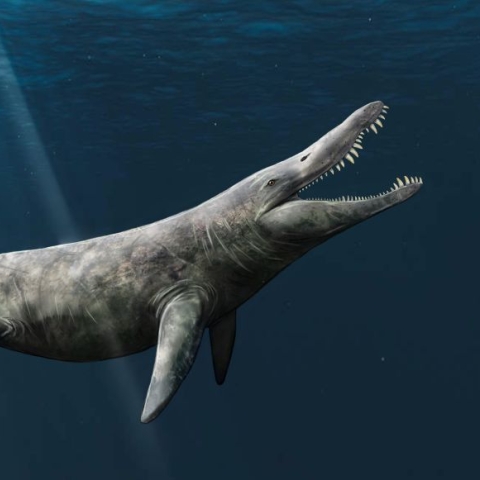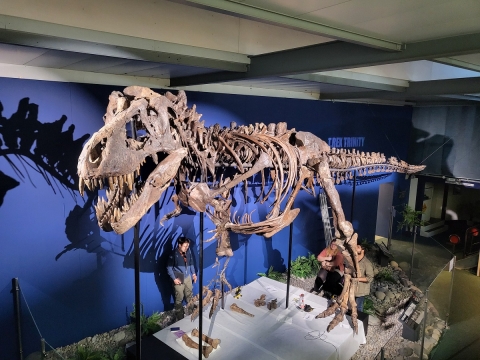

Staff and students are undertaking a range of scientific work on the extraordinary T. rex Trinity
12 April 2024
3 minutes
A team of palaeontologists from the University of Portsmouth is leading the scientific research on the extraordinary multimillion-dollar Tyrannosaurus rex skeleton ‘Trinity’.
Trinity owes her name to the fact that she consists of the bones of three different individuals, which were discovered between 2008 and 2013 in the United States. Many famous dinosaur mounts consist of remains of multiple individuals because nearly all finds are incomplete. The skeleton, which consists of 293 original bones (accounting for half of the total) is about 12 metres long and around 4 metres at the shoulder.
The skeleton was acquired for over $6 million by the Phoebus Foundation, who selected University of Portsmouth palaeontologist and anatomist Dr Nizar Ibrahim to lead the scientific work on Trinity.
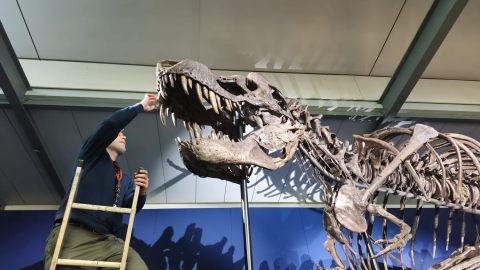
Dr Nizar Ibrahim looking at the skull of Trinity.
The Portsmouth-based ‘Team T. rex’ also includes Dr Ibrahim’s PhD students Megan Jacobs and Stella Angelika Ludwig, along with level 6 student Josephine Pallister and MRes student Hamzah Imran.
The team is collecting data on the size and appearance of the bones, the age of the dinosaurs, and is paying particular attention to palaeopathologies - ancient evidence for traumatic injuries and disease. Even for the mighty Tyrannosaurus rex, life in the Cretaceous was tough and dangerous, with the risk of infections and dangerous encounters with formidably armed herbivores lurking around every corner.
Dr Ibrahim, Senior Lecturer in Palaeontology at the University of Portsmouth, said: “Working on this T. rex is of course something 5-year old Nizar would very much approve of and I have enjoyed every minute of it. For my students, it’s obviously an opportunity and experience of a lifetime and I am very happy that they get to use their impressive knowledge of dinosaur anatomy working on this iconic creature.
“The entire project also serves as a reminder that Portsmouth now ranks as one of the foremost universities in Europe in the field of vertebrate palaeontology.”

Working on this T. rex is of course something 5-year old Nizar would very much approve of and I have enjoyed every minute of it. For my students, it’s obviously an opportunity and experience of a lifetime and I am very happy that they get to use their impressive knowledge of dinosaur anatomy working on this iconic creature.
Dr Nizar Ibrahim, Senior Lecturer in Palaeontology
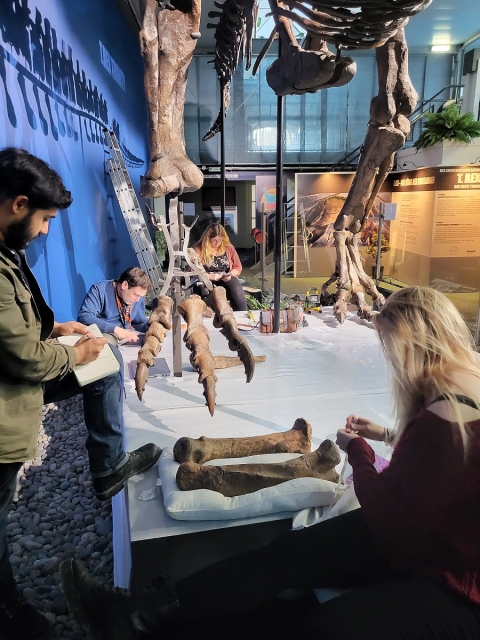
Team T. rex at work
PhD student Megan Jacobs said: “It's every palaeontologist's dream to work on T. rex. It has to be the most iconic dinosaur going.
“Seeing Trinity for the first time was incredible, just to realise how big these animals actually are, something you can't get from any photo. We found many interesting aspects of the skeleton on our visit, and I'm looking forward to continuing our research and sharing it with everyone.”
PhD student Stella Angelika Ludwig said: “Trinity is a truly impressive skeleton. It’s an awe-inspiring animal, especially when you see it in person.
“Working on such a large mounted skeleton comes with many challenges and required us to get creative at times. It was a unique experience and I can’t wait to see what the data we collected will reveal. There is no doubt that Trinity will offer us exciting glimpses into the life of Tyrannosaurus rex. Her story is a prime example of why it is so important that specimens are made available to research and the public in a museum.”
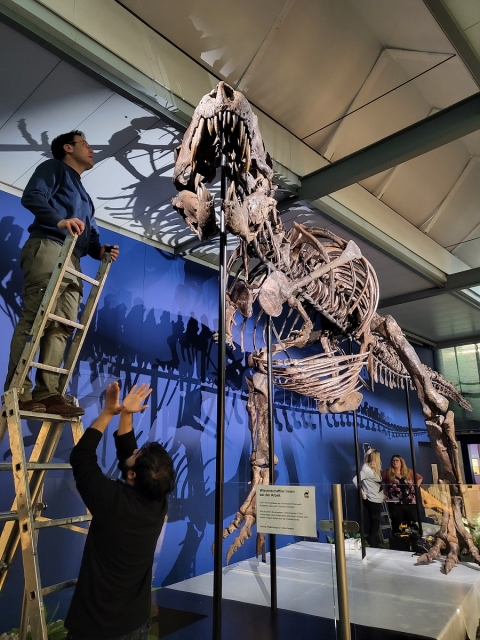
Team T. rex at work.
Trinity is currently being exhibited in one of Europe’s biggest dinosaur museums, the Aathal Dinosaur Museum (Sauriermuseum Aathal) in Zürich, Switzerland, until 19 January 2025. From there, the plan is to display the T. rex skeleton in several other international museums. Trinity’s final destination will be the ‘Boerentoren’ (‘Farmer’s Tower’), in the centre of Antwerp in Belgium, where everyone, young and old, can admire her in a permanent exhibition.
Dr Ibrahim added: “I would love to bring this Tyrannosaurus to Portsmouth - the UK has never hosted a T. rex skeleton of this calibre in the past - previous attempts typically consisted of highly incomplete remains built into a cast. So if any Hampshire-based venues are interested in hosting the king of the dinosaurs, please reach out and we’ll consider the offer!”
Other stories you may be interested in
Predatory dinosaurs such as T. rex sported lizard-like lips
30 March 2023
5 minutes
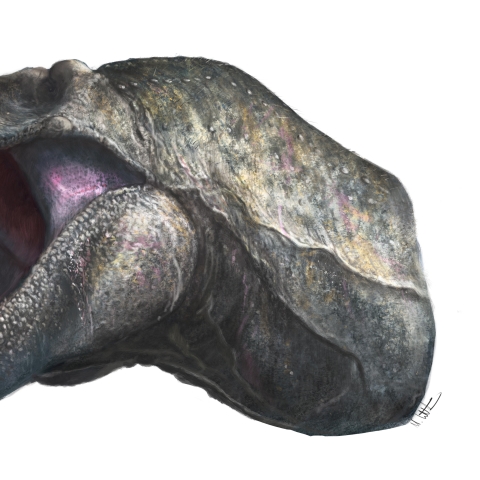
New fossil shows Europe had different herbivorous dinosaurs to Asia and America
15 September 2023
5 minutes
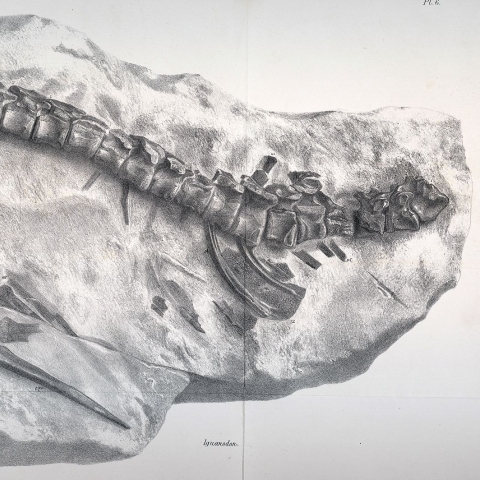
Giants of the Jurassic seas were twice the size of a killer whale
Over 20 years ago, the BBC’s Walking with Dinosaurs TV documentary series showed a 25-metre long Liopleurodon. This sparked heated debates over the size of this pliosaur as it was thought to have been wildly overestimated and more likely to have only reached an adult size of just over six metres long.
10 May 2023
5 min read
